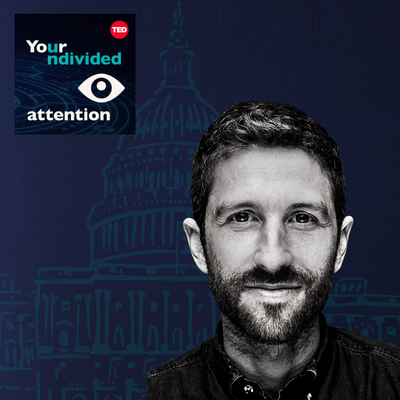Episode 59 | Nov 23, 2022
Real Social Media Solutions, Now with Frances Haugen
When it comes to social media risk, there is reason to hope for consensus. Center for Humane Technology co-founder Tristan Harris recently helped launch a new initiative called the Council for Responsible Social Media (CRSM) in Washington, D.C. It’s a coalition between religious leaders, public health experts, national security leaders, and former political representatives from both sides - people who just care about making our democracy work.
During this event, Tristan sat down with Facebook whistleblower Frances Haugen, a friend of Center for Humane Technology, to discuss the harm caused to our mental health and global democracy when platforms lack accountability and transparency. The CRSM is bipartisan, and its kickoff serves to boost the solutions Frances and Tristan identify going into 2023.
Major Takeaways
Algorithms are responsible for pushing both kids - and countries - towards extremism. Democracy backsliding and ethnic violence are connected to mental health harms because of the algorithms that govern them. Ethnic violence videos escalate to civil war, just like food videos escalate to pro-anorexia content.
Embedded growth obligation (EGO) is a key driver of these problems. Facebook has kind, conscientious people inside who want to do better, but their hands are tied. They’re beholden to market incentives, yet are being tasked with important non-profit type societal work like maintaining public safety and national security.
There are simple, practical solutions available that could immediately make a huge impact. Requiring people to 1) click a link before sharing it and 2) reshare via copying and pasting are examples of fixes that would have the same impact as the work of an entire third-party fact checking team of journalists at Facebook, according to Haugen.
The Platform Accountability and Transparency Act (PATA) would oblige companies like Meta to open their data to researchers who are studying the effects of these platforms on public health and democracy. The bill came about in direct response to disclosures from Frances and other social media whistleblowers. PATA hasn’t been introduced to Congress, but it has bipartisan support.
Other recommended reading
Council for Responsible Social Media (CRSM)
A project of Issue One, CRSM is a cross-partisan group of leaders addressing the negative mental, civic, and public health impacts of social media in America.
Twitter Whistleblower Testifies on Security Issues
Peiter “Mudge” Zatko, a former Twitter security executive, testified on privacy and security issues relating to the social media company before the Senate Judiciary Committee.
Beyond the Screen
Beyond the Screen is a coalition of technologists, designers, and thinkers fighting against online harms, led by the Facebook whistleblower Frances Haugen.
#OneClickSafer Campaign
Our campaign to pressure Facebook to make one immediate change — join us!



